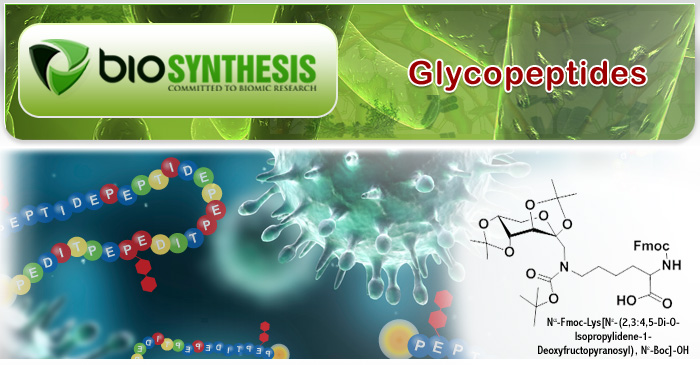Advanced glycation end products (AGEs) are a class of compounds formed from non-enzymatic
reactions of proteins with glucose, mannose and other reducing sugars.1
Prolonged exposure of proteins to glucose as in the case of diabetics have been
attributed to increased AGEs formation.2a AGEs
are formed when a sugar reacts with an amino group of a protein, to form a Schiff
base which rearranges into an Amadori product as in the case of hemoglobin A1c.2b
As a result, N-glycated peptides have received high priority to serve as biomarkers
for diagnosis and prognosis of diabetes by monitoring progress and evaluating the
efficacy of its therapy.
Most N-glycated peptides are synthesized by incubating fully deprotected peptide
with excess of D-glucose.3 This method is not
site specific and yields multiple products which are difficult to purify. In order
to circumvent this problem, researchers have incorporated a protected amino fructose
into the side chain of lysine by reductive alkylation using 2,3:4,5-di-O-isopropylidene-b-D-arabino-hexos-2-ulo-2,6-pyranose.1 This method yields site selective products at
higher purity.3
Bio-Synthesis, Inc., a leading manufacturer of custom peptides, is currently offering
N-glycated peptide fragments from HSA, hemoglobin A, fibrinogen and other peptides
for your research.
We are also offering Nα-Fmoc-Lys[Nε-(2,3:4,5-Di-O-Isopropylidene-1-Deoxyfructopyranosyl),
Nε-Boc]-OH.



